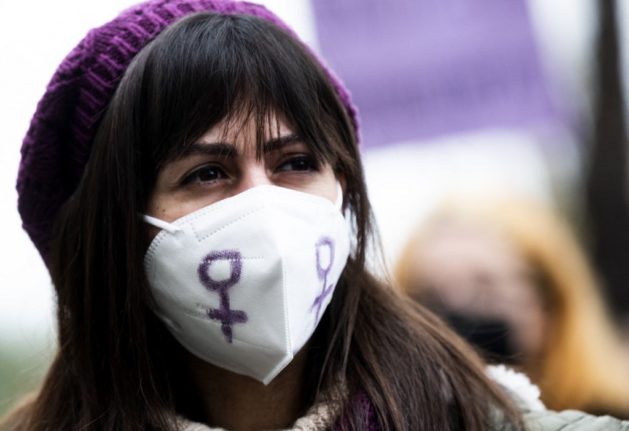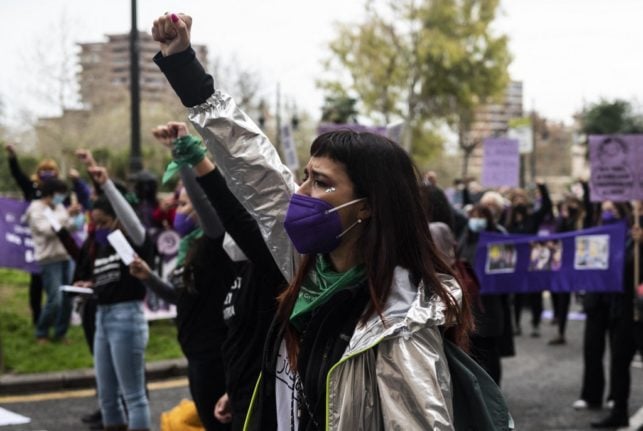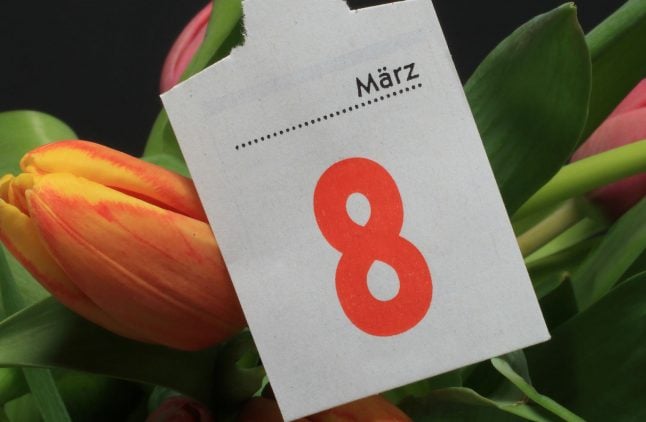Demonstrators gathered in front of the regional parliaments of Andalusia, Catalonia and Navarre with protests planned for dozens of other cities.
But events in Madrid were called off after the Constitutional Court rejected rights groups’ appeals against a ban on demonstrations, imposed last week by the Spanish government in a region that has one of the country’s highest infection rates.
Last year over 100,000 people marched in Madrid, including three ministers from Socialist Prime Minister Pedro Sanchez’s government who subsequently tested positive for Covid-19.
Days later his government imposed one of Europe’s strictest lockdowns as infections and deaths soared.
Conservative opposition parties blasted Sanchez for allowing the march to go ahead, blaming it for a spike in infections in Madrid.
Despite the ban, a few dozen people gathered in Madrid’s central Puerta del Sol square, standing at a distance from each other as they held up signs with feminist slogans.
Speaking at an official event to mark the day, Sanchez said “much work remains to be done” to advance women’s rights.

“The agenda for change that our country needs is the feminist agenda, with people’s lives at the centre, public services and the fight against all forms of male violence,” he added.
Spain has a thriving feminist movement which in 2018 saw five million people taking part in a nationwide strike on International Women’s Day to call attention to gender disparities.
But the movement has faced a backlash this year, with several street murals celebrating prominent women vandalised over the weekend in Madrid and elsewhere.



 Please whitelist us to continue reading.
Please whitelist us to continue reading.
Member comments